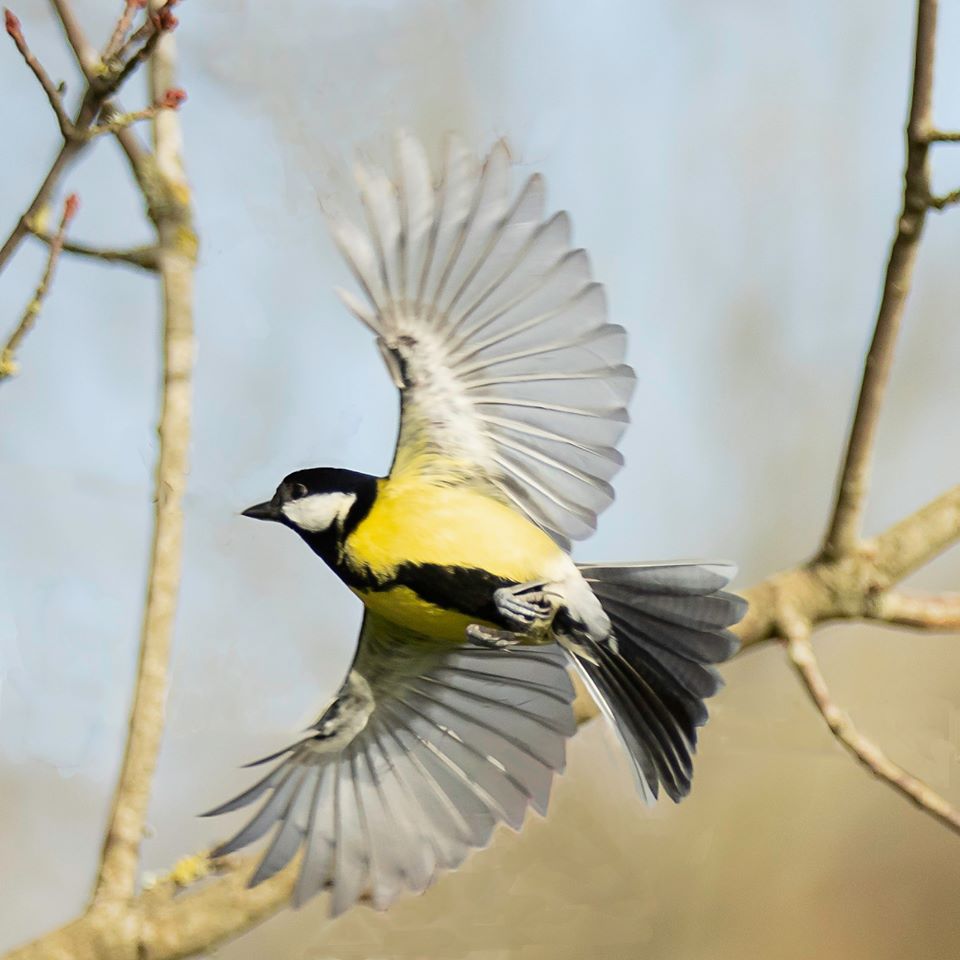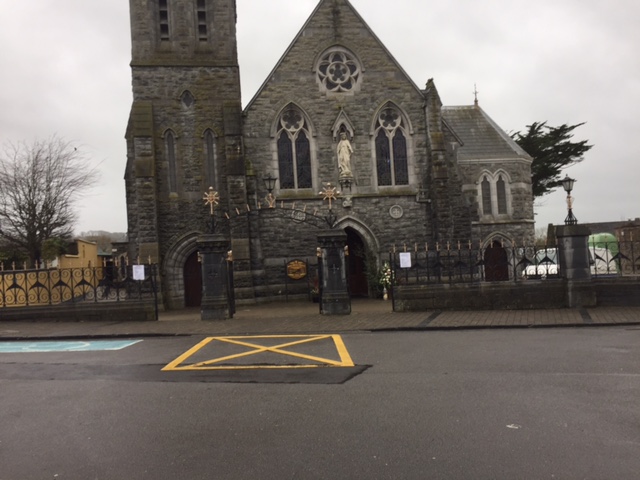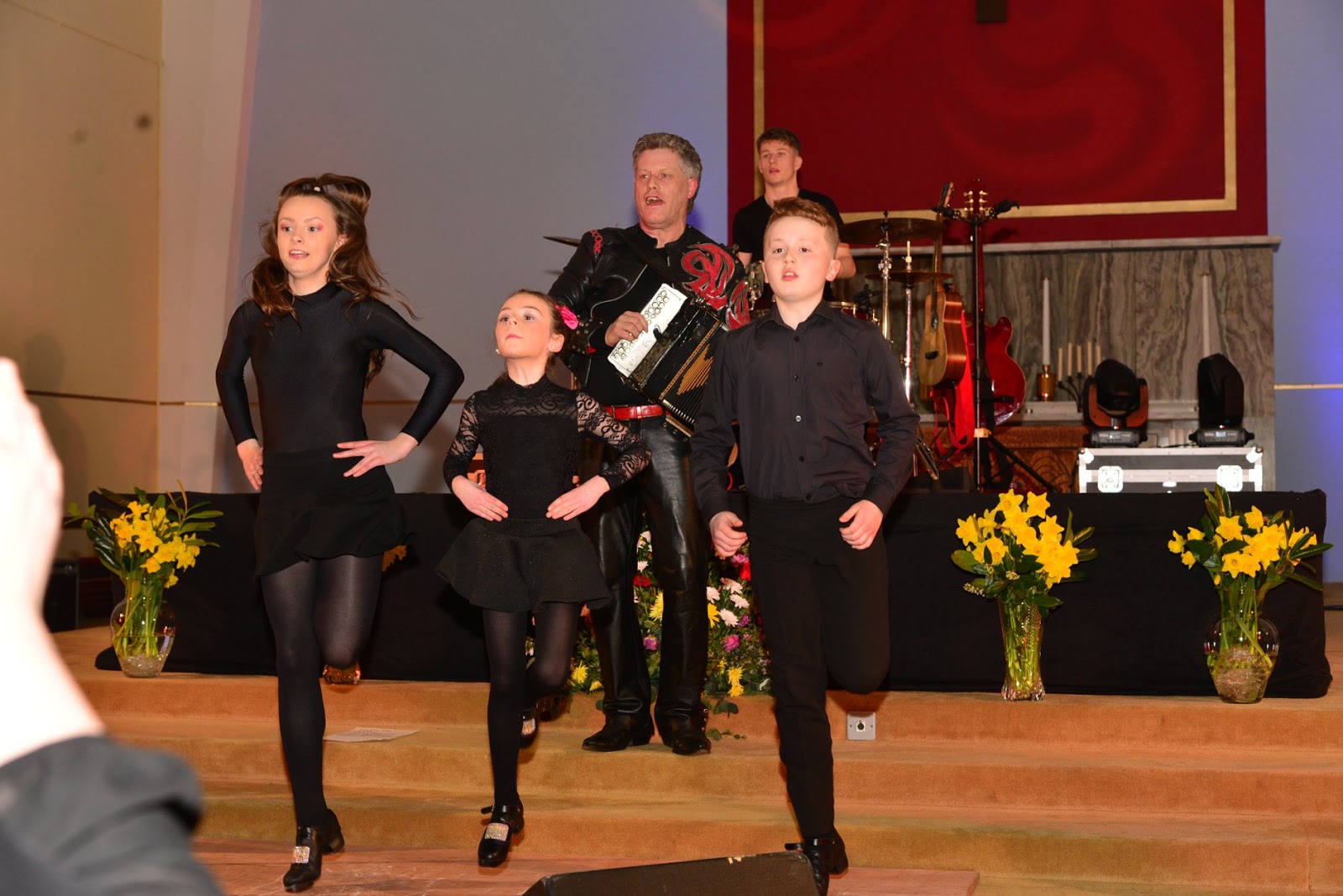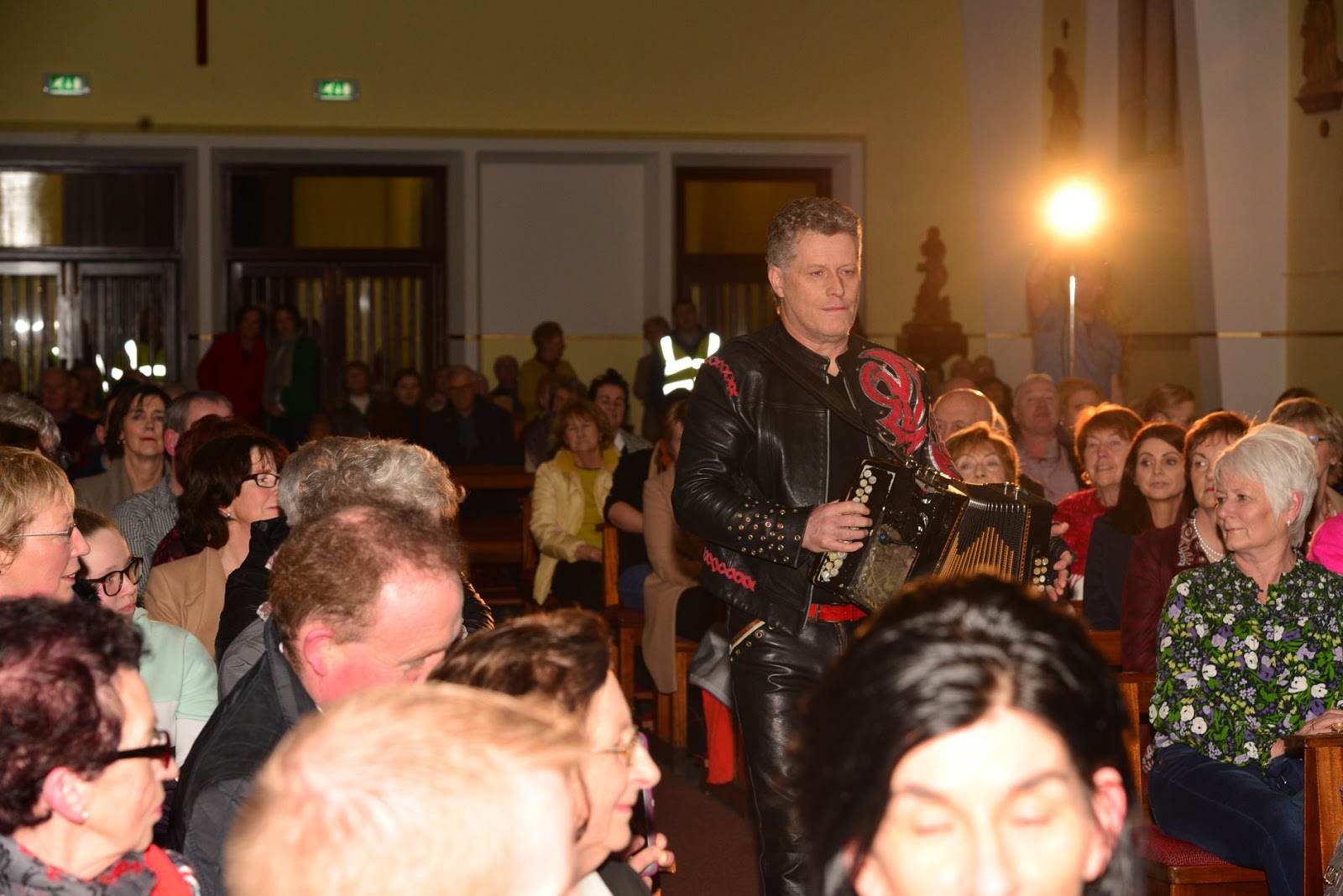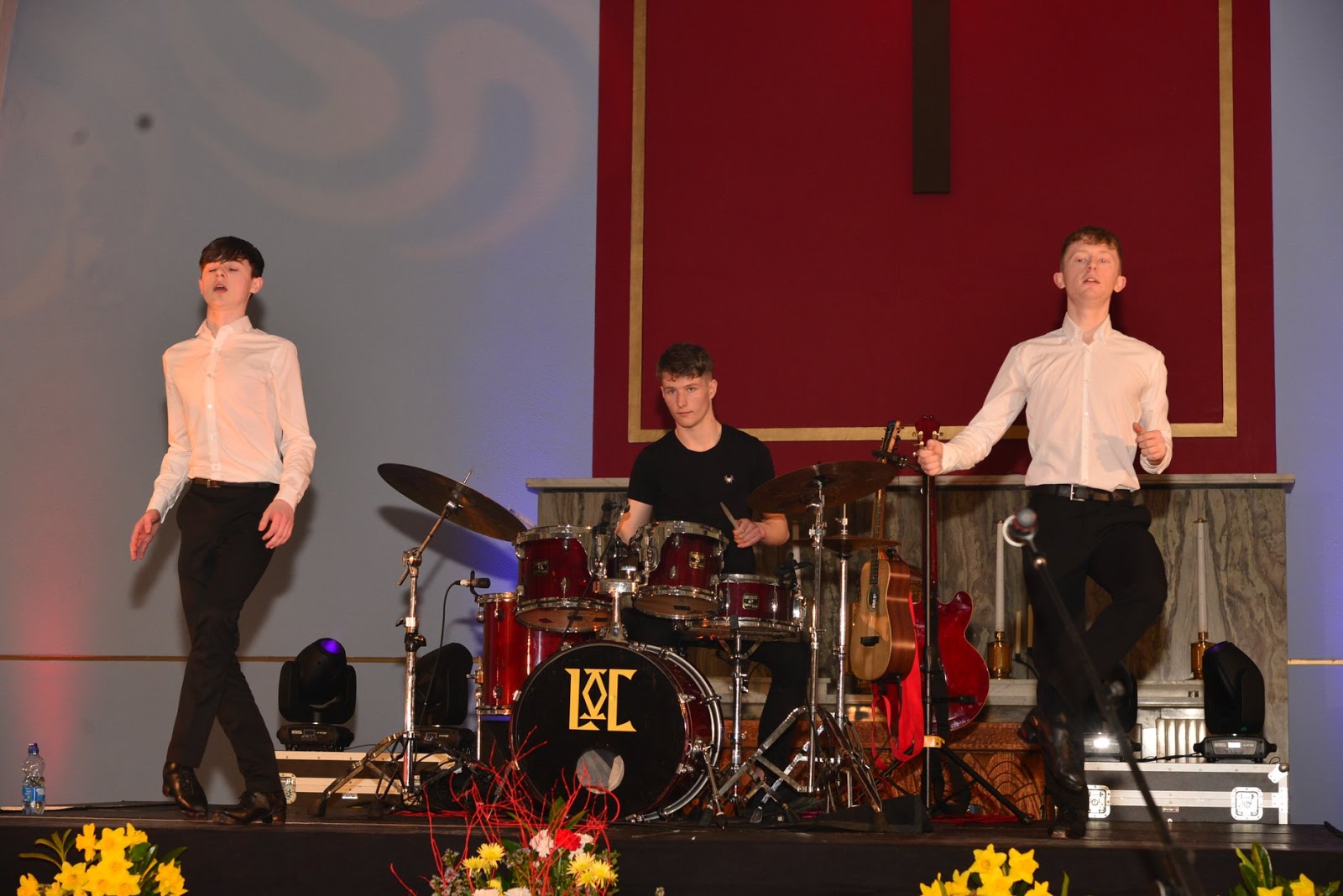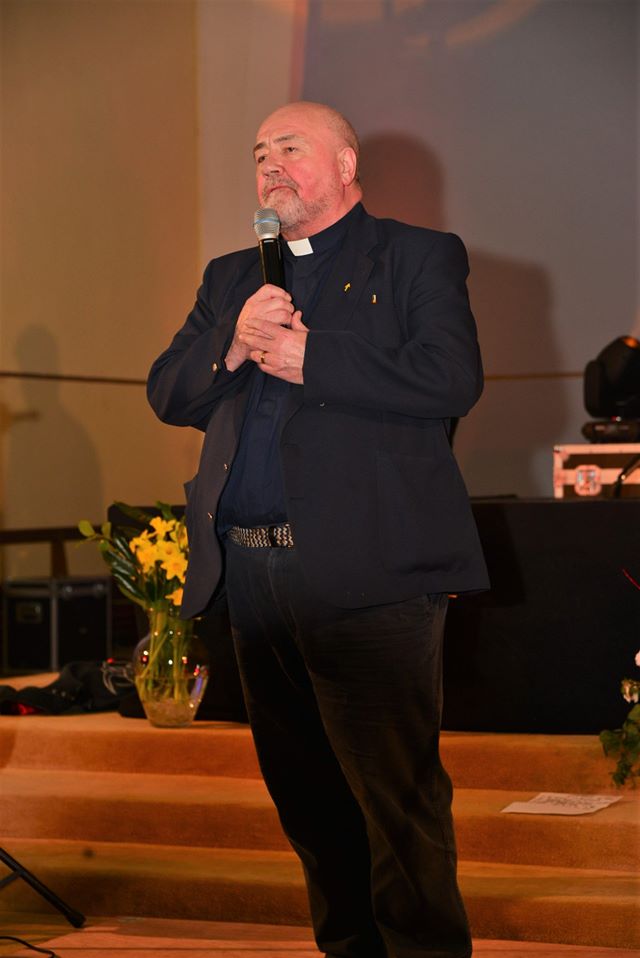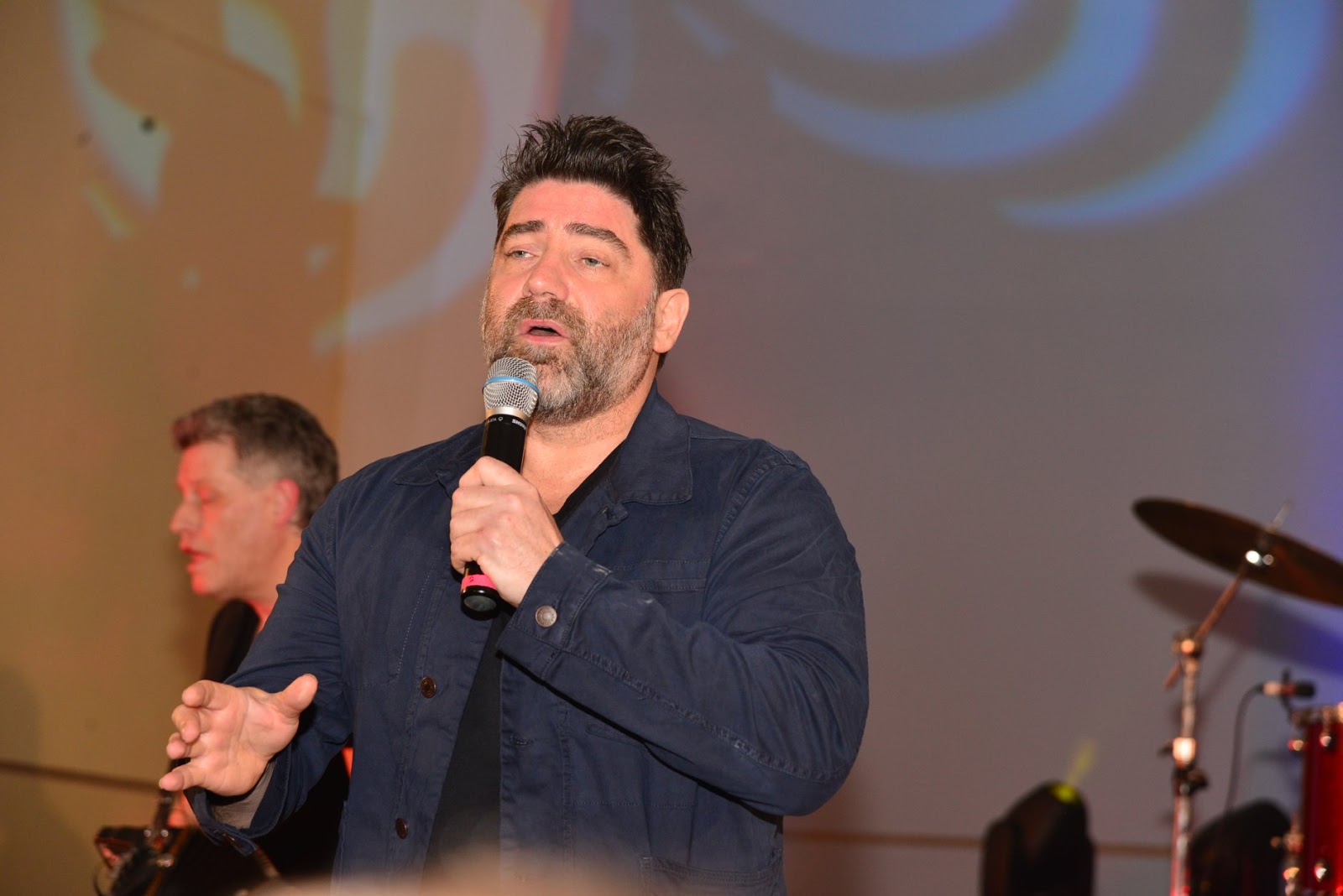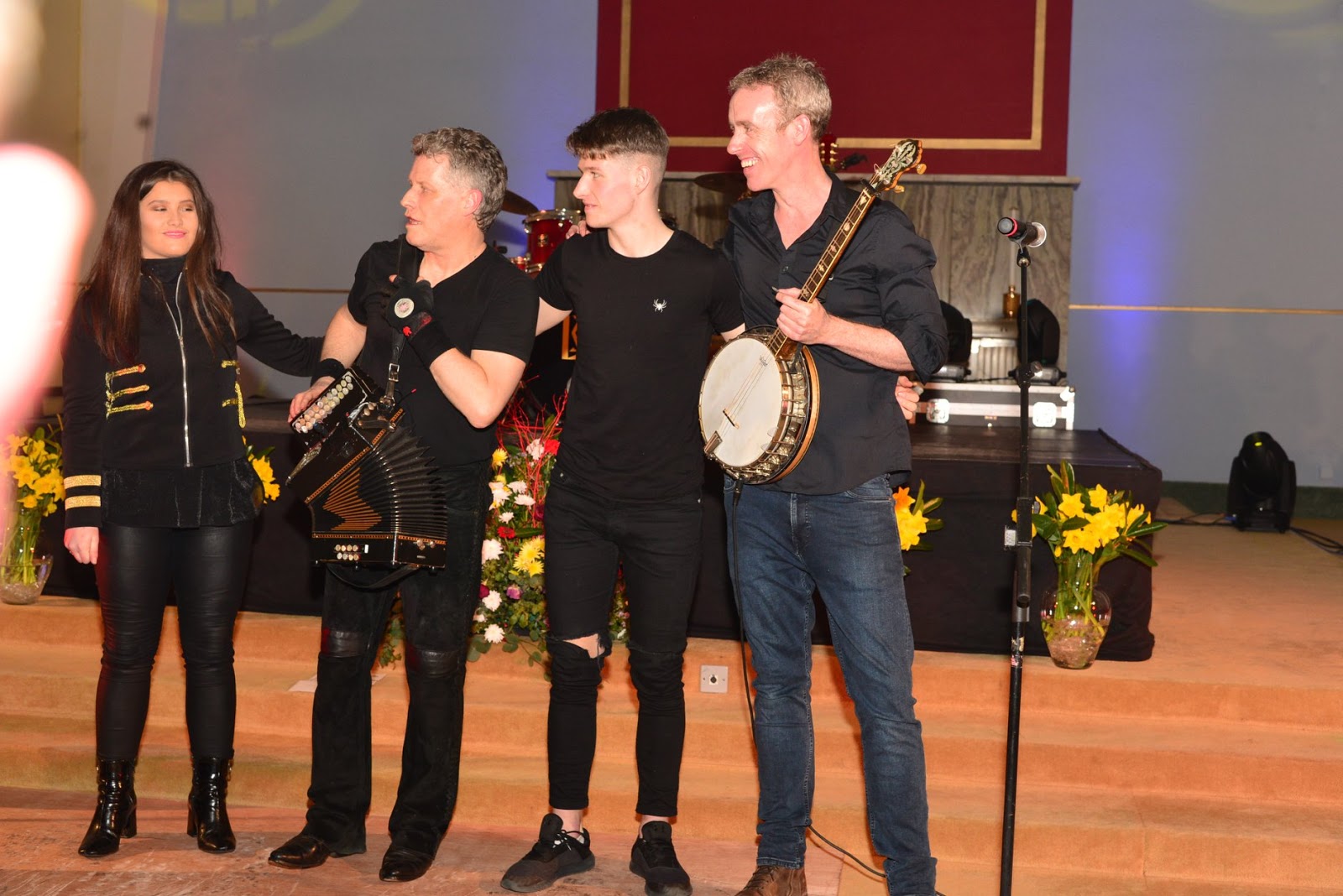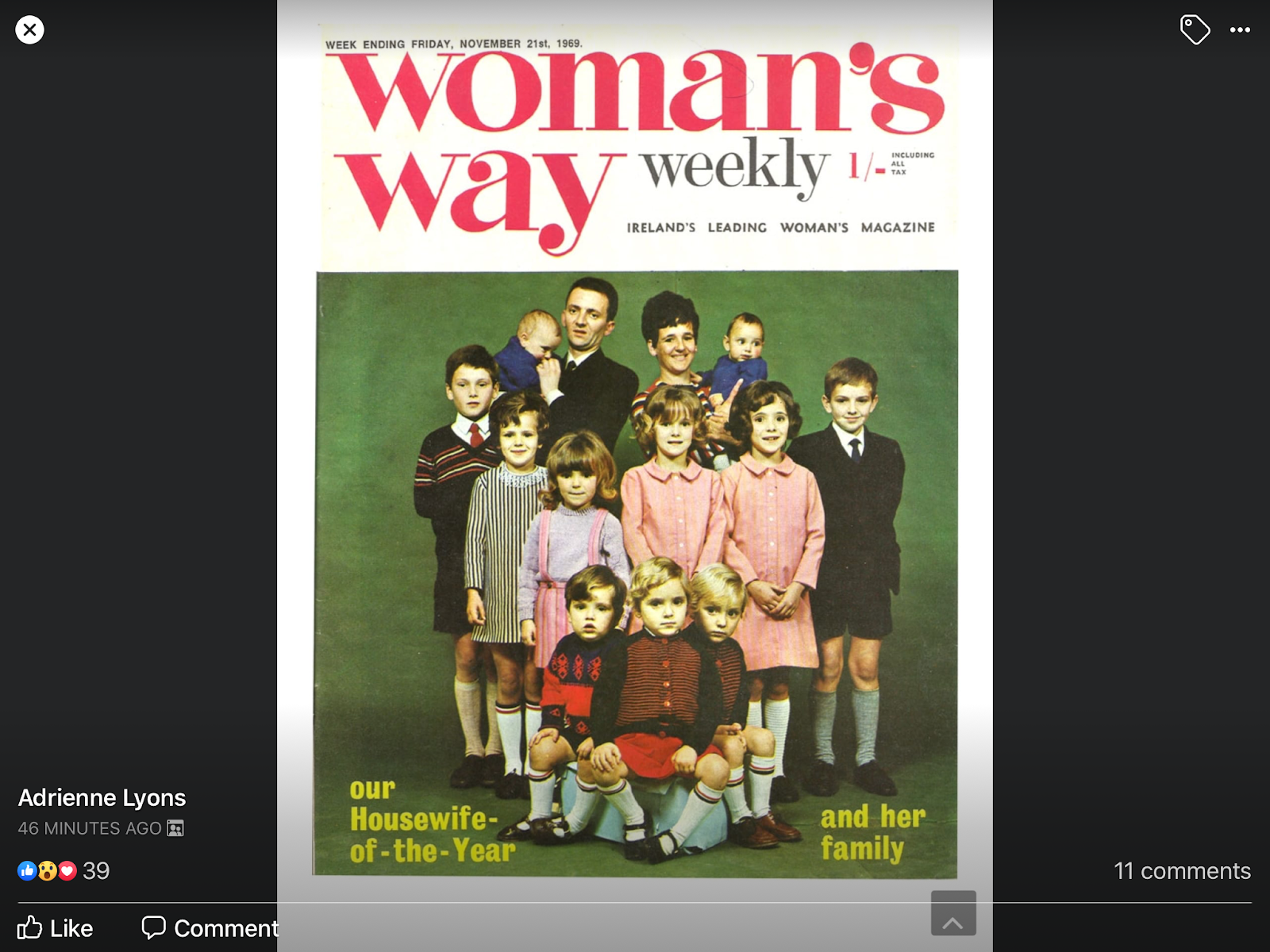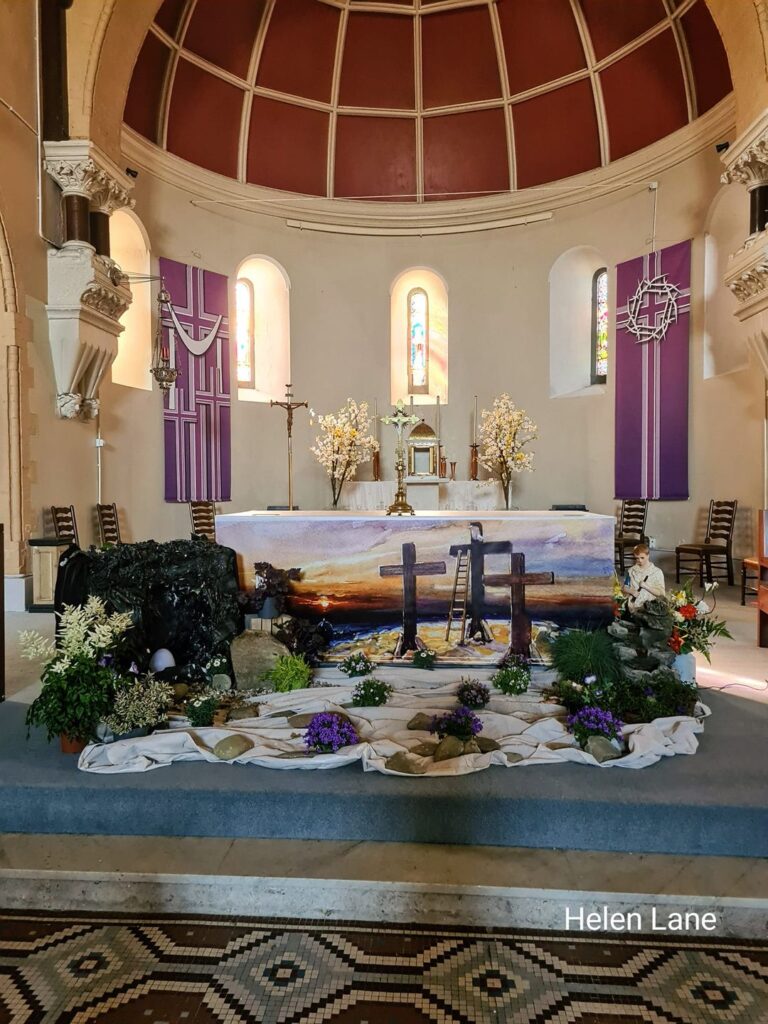
Easter altar in Ballylongford photographed by Helen Lane
<<<<<<<<<<<
John Molyneaux R.I.P.
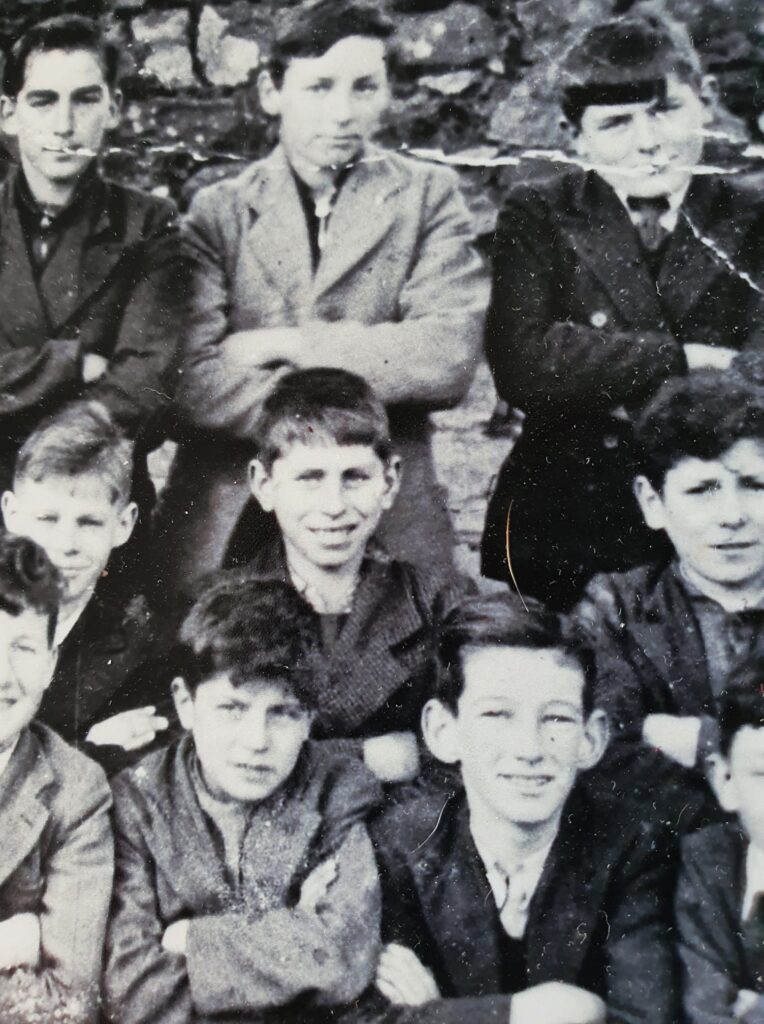
This photograph was shared by Martin Moore. A young John Molyneaux is on the right in front. Martin’s Dad, Michael Moore R.I.P. is in the centre at the back.
David Kissane’s Tribute to his former teacher, John Molyneaux continued;
We take up the story here at David’s first days in St. Michael’s.
….
The teachers strode in in turn as the classes revealed themselves. In strode Mr John Molyneaux through the door on our left for our Latin class. Head down, full stride, total silence and up to put his back to the blackboard. He exuded authority. The type of authority that God had in the Old Testament. Lists of books and accoutrements were delivered and warnings about homework and dedication as Mr Molyneaux scanned the class for possible trouble. Or worse. Laziness. Yes sir, we understood what was required. The weight of the college began to be felt. We felt a funeral in our brains as Emily Dickinson had written to the west in the US.
And for the five years that most of our class of ’72 spent in the two upstairs rooms in St Michael’s College, John Molyneaux was a teacher. First and foremost as our Latin teacher, a subject he imparted with the timorem dei (fear of god) that the Roman emperors whom he taught us about had possessed. The amo, amas, amat, amamus, amatis, amant that was drilled into us, by both Mr Molyneaux and ourselves, frightened and excited us all at once as he word amo means “I love” and encouraged all sorts of possibilities in our hungry minds. He had an ice of character when teaching in those early days. Roman history was more interesting and the perusing of our text “The Story of the Roman People” by Tappan was immediately a hit with boys interested in war and fighting. We grew into the Latin and the other subjects by hook and by crook. Vercingetorix, Hannibal, Cato, Pompey, Crassus, Romulus and Remus, Lucullus, Cicero, Augustus, the Carthaginians and the Vandals. They became part of our psyche and brought us into a world of battles and wars of the past as the Vietnam war was part of our present in the late 1960s and early 1970s.
Mr Molyneaux also grew as a character and had his bridging nuances when required. One phrase of his became legendary: “Oh ho!” It was often uttered when a student had made a slip-up in an answer and could have unfortunate consequences but was also used in humorous tales that he would refer to in the course of an aside to the regular routine. When Julius Caesar was faced by daggers, and Brutus (his so-called friend) was among them, the emperor was heard to say “Oh ho!” before the eternal “Et tu, Brute!” According to Mr Molyneaux.
And then there were the English derivatives of Latin words that he usually found a funny angle to explain. When clarifying that the word bullet came from the Latin word for a locket, “bulla” he would have us know that a locket was a shell-like object with a charm inside, ie the gunpowder! Smiles and nods all round. A question about the Latin word “mappa” was answered by one student (from Lisselton) by stating that the word “nappy” derived from it, rather than napkin! Not far away though and Mr Molyneaux smiled at the verbal typo. One all.
Old Latin sayings are a treasure trove of knowledge and he provided the key more more than once. There was the “quis costodiet custodes?” one…who watches the watchers? He related a story about a meeting he was at the week before to appoint river wardens for the Feale and had used the saying to remind the meeting of the necessity to keep an eye on the wardens as well! It reminded us that Mr Molyneaux had another life outside teaching and revealed that in fact he was active in numerous committees. A multi-dimensional human being who contributed to the community that he was born into.
We discovered the further versatility of our Latin teacher when he became our English teacher for Inter Cert. He was immersed in the English language and we were amazed that there was another dimension to his classroom self. Shakespeare’s Merchant of Venice is especially remembered as the play he shared with us. He enunciated the central theme of the play with incredible expertise and for many of us that was our way into the genius that was Shakespeare: “How many things by season season’d are?” and “the quality of mercy is not strained” still taste to the memory lollipop.
I can see Mr Molyneaux now sitting on top of a desk at the head of our thick-walled classroom in St Michael’s on an April day with the world waking up outside and inner worlds waking up in all of us. The red-covered Merchant book in his hand and his gifts as a storyteller casting a spell over the hushed room. All teachers are storytellers and John Molyneaux was a gifted one. No videos or opportunities to see the actual play in those days. It was happening on the classroom stage and in the words of the teacher. The climax of the play had arrived. Shylock had demanded his pound of flesh for a loan not returned by Gratiano and the judge Portia had asked the shivering Gratiano to lay bare his chest for the knife of Shylock. We feasted on John Molyneaux’s words as Portia dramatically adds “But in the cutting, if thou dost shed one drop of Christian blood, thy lands and goods are confiscate unto the state of Venice”. We were showered with the magic of the words. And the world beyond time and place. Our new world.
The labels of Jew and Christian would be worked out later when our understanding of religion would be challenged in the years ahead, but something magical had happened that day in our English class. In fact, something magical happened in every class most days.
Gradually his influence came to bear in many other ways. His artistic style of hand-writing was emulated by some of us…a not-joined-up style with the peculiar three-pronged independent letter that was copied and used by this student for the rest of his life. The mention of hand-writing may be a mystery to modern students but in the heady days of 1967-1972 it as a status symbol in many ways. It was also the messaging system to girlfriends and pen pals and family.
One of the abiding memories of Mr Molyneaux’s classes is the Saturday morning westerns’ lends. What? Saturday morning? Yeah, we went to St Michael’s for a half day on Saturday for a few years! Westerns? Yeah! Every Saturday at the end of the Latin class, he would bring in a box of Westerns to lend to us for the week. The genre was very popular at the time with boys and men and authors like Zane Grey and Oliver Strange (the Sudden series) were among the most read. In my case my father always read the borrowed Westerns, and the father of my friend Gerard Neville from Inch likewise fed on the books.
(More tomorrow)
<<<<<<<<<
A New Chapter for Ballybunion’s Tinteán

This huge theatre, 517 seats, has been beset by problems for a long time. It is brave and enterprising of the new committee to take it on and attempt to revive it and fulfill the dream of its founder, Micheál Carr.
The first concert at Easter 2022 was a great success.
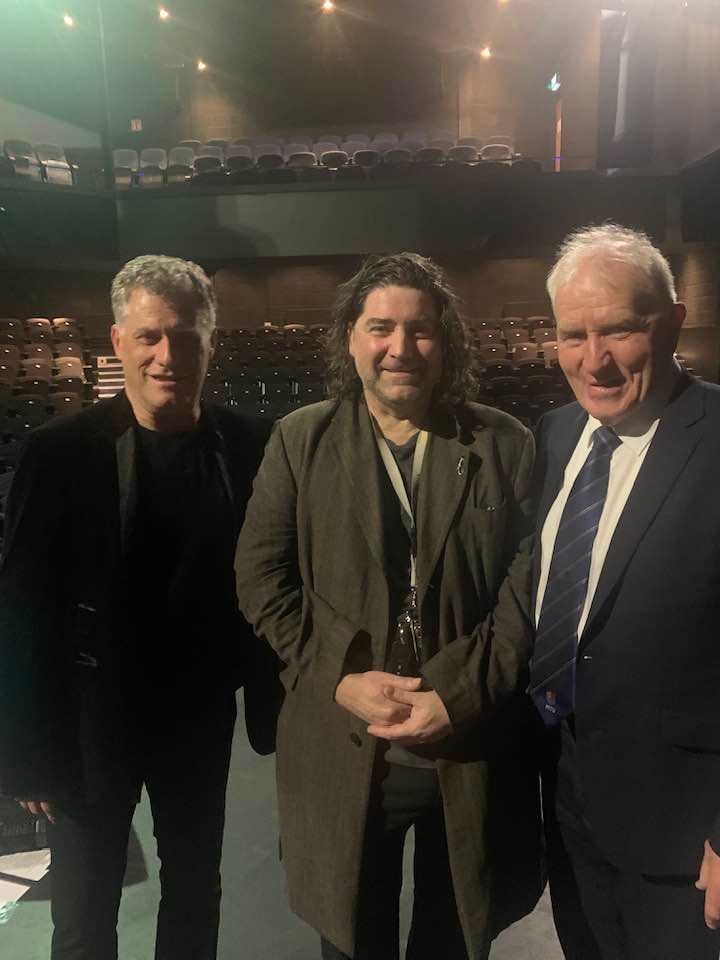
There is an ambitious programme planned for the coming months. Let’s hope it is a huge success.
<<<<<<<
Meanwhile back in 1968
Once upon a time in Listowel, the highlight of the social calendar was McKenna’s Staff annual Social. You did not have to work in McKenna’s to get a ticket.
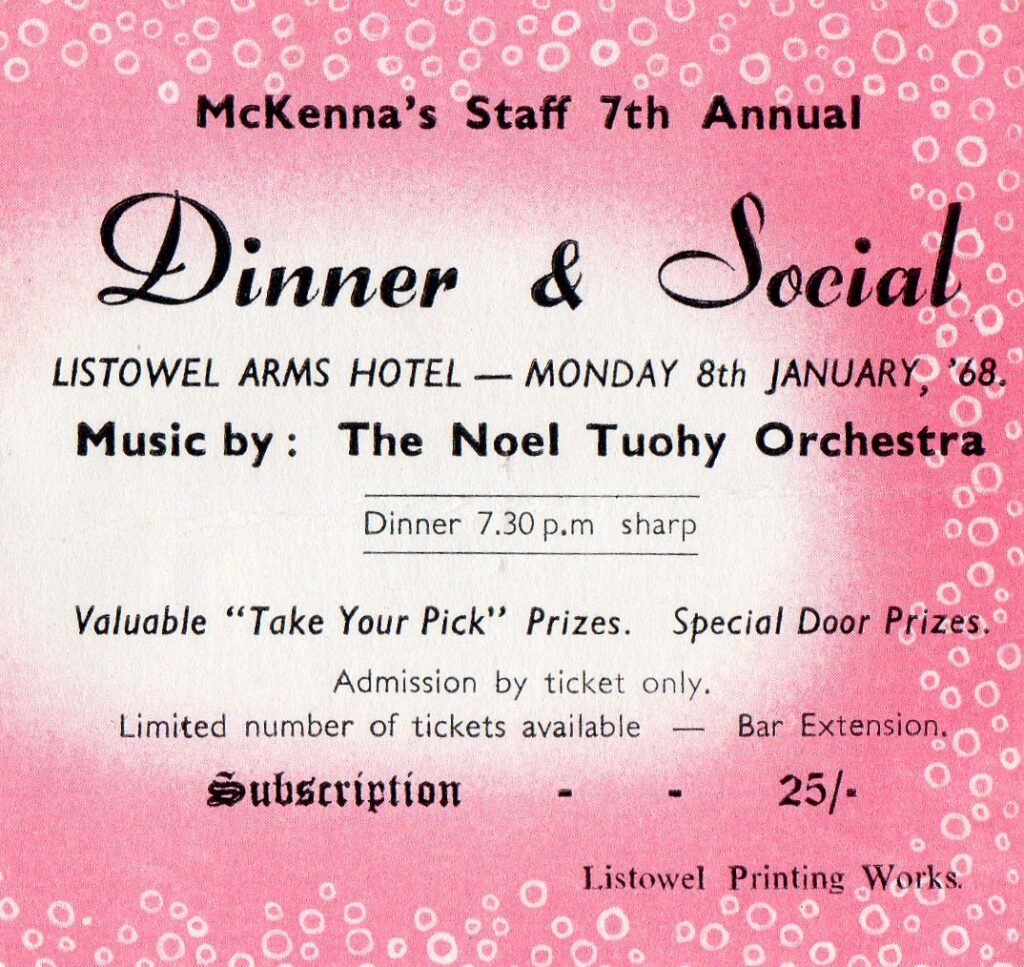
<<<<<<<<<<
Ah lads, what’s going on here ?
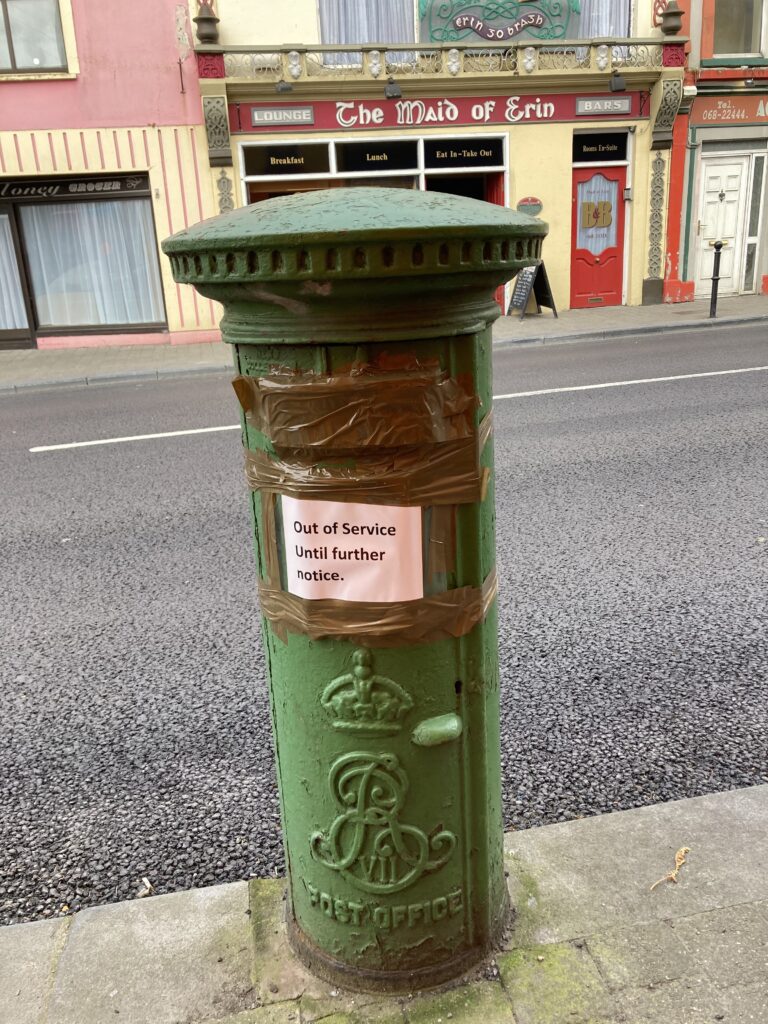
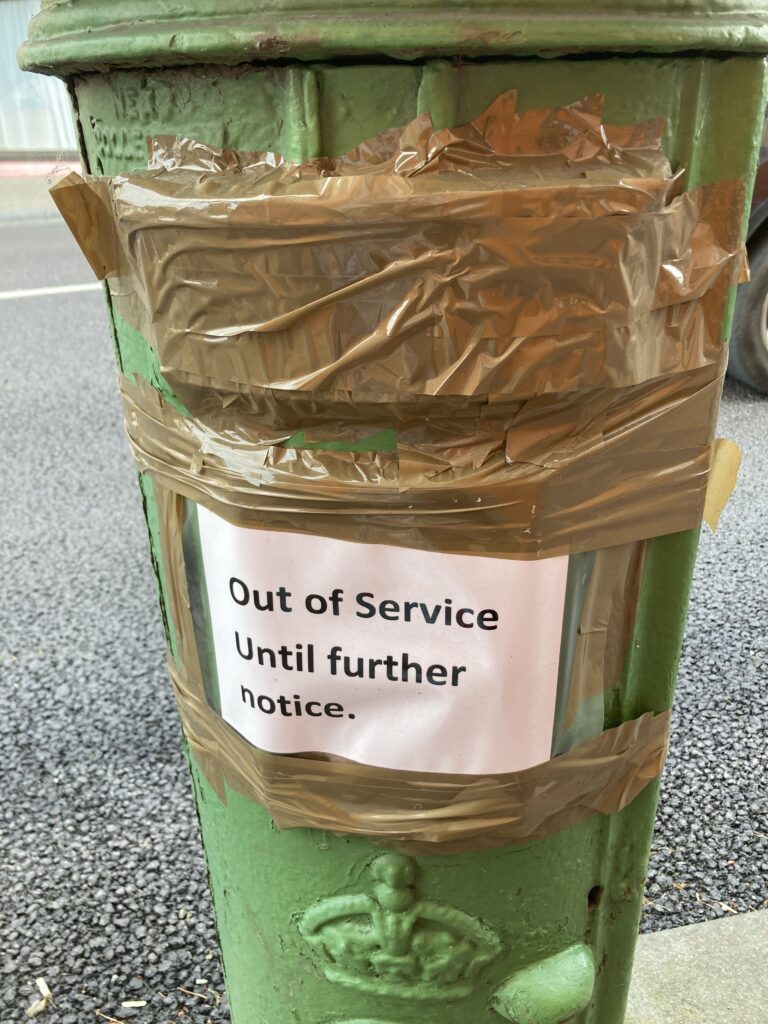
I hope the further notice is coming shortly.
<<<<<<<<<<<

